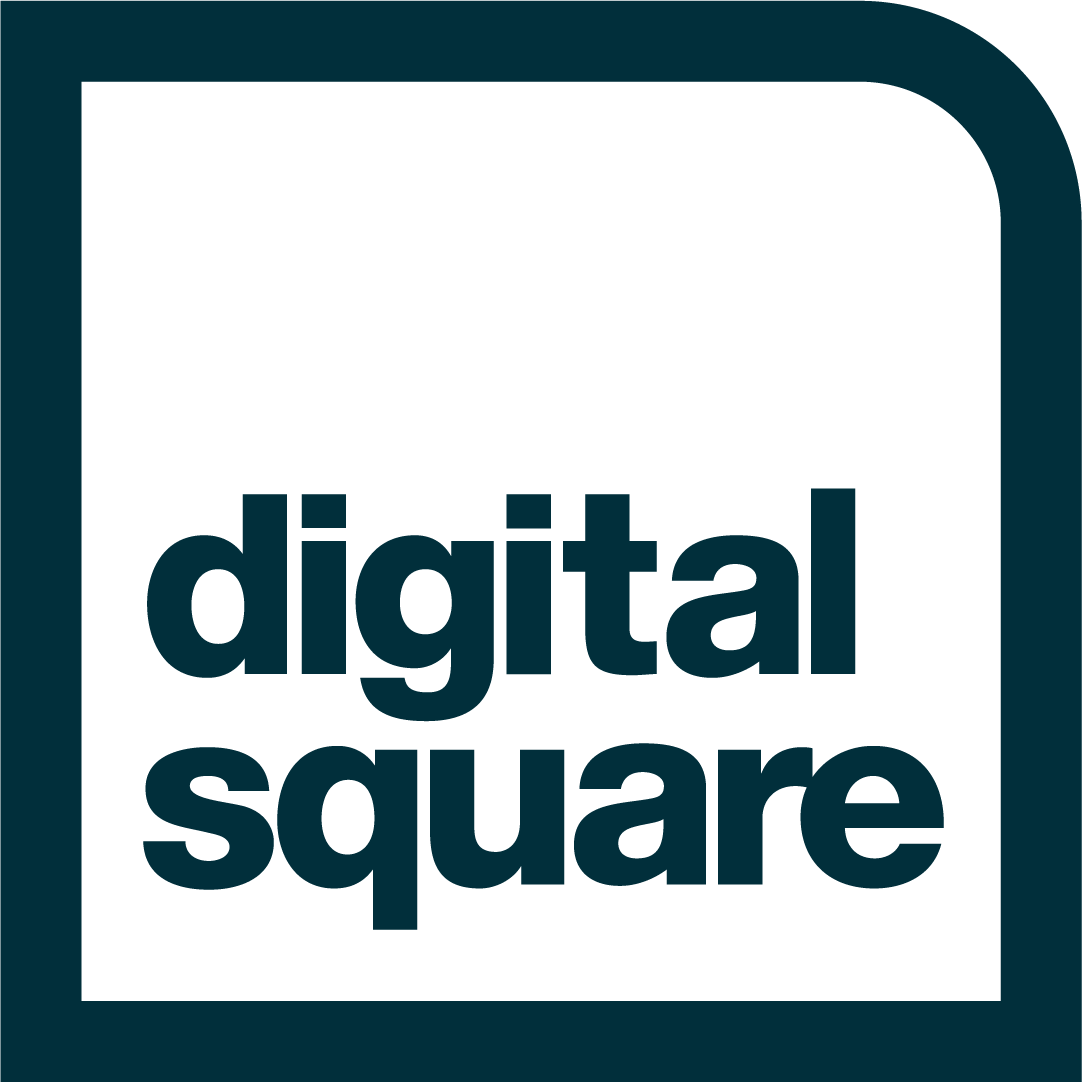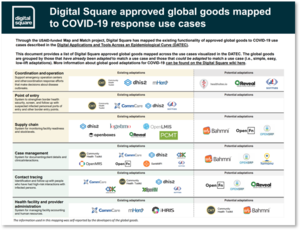Partnering with countries to adapt digital health global goods for COVID-19 response
For the last five years, Digital Square has been working with ministries of health (MOHs) to align adaptable, interoperable digital technologies with local health needs. As the COVID-19 pandemic intensified, Digital Square was perfectly placed to coordinate the adaptation of existing digital health global goods to meet countries’ needs to fight COVID-19.
To help stakeholders know which global goods have been adapted and how, Digital Square launched Map and Match (M&M)—a project to help countries, donors, implementing partners, and the global digital health community at large to leverage and adapt existing digital tools in response to the COVID-19 pandemic. Funded by the United States Agency for International Development (USAID) in coordination with other donors, including the Bill & Melinda Gates Foundation, the Centers for Disease Control and Prevention (CDC), and the World Bank, M&M mapped tools already used in countries to match opportunities for adaption and scale of those existing tools for country COVID-19 response.
As the COVID-19 pandemic grew, MOHs and Digital Square both recognized that adaptation of existing tools should be prioritized over creation of new ones—a crucial lesson learned from the 2014 West Africa Ebola outbreak. In Kenya, Onenus Kamau from the country’s MOH noted during an interview for the M&M project that “there is [an] influx of standalone systems in the country, which brings a variety of problems.”
If managing healthcare in a pandemic is already a seemingly Sisyphean challenge, then the addition of change management to new tools, with new training, and new lessons to learn, would be all but impossible in a timely manner to save lives. During a pandemic, efficiency is crucial on the path to impact.
Through the M&M project, Digital Square got to work engaging with government partners in Angola, Kenya, Niger, Rwanda, and other countries to understand what was already working, and see where more support for digital tools was needed to help strengthen COVID-19 response. The findings reflect data collected via a desk review, surveys, and key informant interviews with country MOHs. The effort began with identifying more than 2,900 tools used in 135 countries.
Digital Square ultimately helped to elevate many adaptations to existing digital health global goods by leveraging the global goods community. One of these global goods, DHIS2, is highly versatile for a variety of country needs. In Senegal, Digital Square’s parent organization, PATH, worked with the MOH there to adapt the program “Tracker” in DHIS2 to monitor COVID-19 cases. This modification allows health workers to easily enroll patients, record symptoms, and follow-up on suspected positive COVID-19 cases in their communities. “From the beginning, we’ve wanted to manage COVID data collection through DHIS2. It has helped us a lot. Without the data we cannot make decisions in real time,” said Oumou Kalsom Diallo, from Senegal’s MOH. “With digital tools, we can manage COVID data without waiting for external support. DHIS2 has been great to have one single unique database.” Mamane Alassane Ahmed, from Niger’s MOH echoed a similar sentiment, noting that “there is the ability for continuity of service with digital health solutions.”
Through the simplification of OpenLMIS, a logistics management-focused global good, health workers in Cameroon were able to place orders for COVID-related supplies and track the entire supply chain from warehouse through delivery. Reaching 5,000 health facilities (or over 10,0000 users) with this tool achieves an estimated 50% reduction in stock out rates at the deployment sites.
Adapting existing global goods is an efficient way to accelerate impact where it is needed most during COVID-19, while supporting the future health needs of countries. Throughout this experience, Digital Square has continued to maintain coordination efforts with partners such as UNICEF and WHO’s Digital Health Centre of Excellence (DICE). By leveraging existing partnerships, leading with previous lessons learned, and tapping its network of technical experts, Digital Square has played a central role in coordinating with investors, implementers, and global stakeholders to bolster country COVID-19 response in a sustainable and efficient way.
As part of M&M, Digital Square developed 22 country briefs to highlight existing digital tools deployed in-country, show which of these tools have already been adapted for COVID-19, and draw attention to opportunities to adapt currently deployed tools for COVID-19 use cases, including vaccine planning, delivery, and monitoring.
For more information about the work of the Map & Match project, check out these resources:
Digital Square’s Map & Match Page
Success Story - Right for response: Matching digital tools to COVID-19


